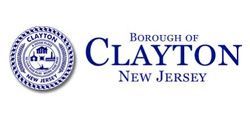FAQs
Law Offices Of Rex J. Roldan PC
What is a Chapter 7 bankruptcy case?
Chapter 7 bankruptcy, often referred to as a 'fresh start' bankruptcy, is a legal process designed for individuals and married couples primarily burdened with unsecured debts such as credit card bills, medical expenses, and unpaid utility charges. This type of bankruptcy typically concludes within three to four months and doesn't require debtors to make payments to creditors. The process ends when the bankruptcy court issues a discharge, which releases debtors from personal liability for most debts and prohibits creditors from attempting to collect these debts. Generally, debtors can retain personal belongings valued below certain 'exemption' thresholds. If debtors maintain payments on secured debts like mortgages and car loans, they can usually keep these assets. Eligibility for Chapter 7 depends on factors including income level, real estate equity, and the timing of any previous bankruptcy discharges. For more detailed information, it's advisable to consult with experienced bankruptcy attorneys.What is a Chapter 13 bankruptcy case?
Chapter 13 bankruptcy is typically suitable for individuals who either don't meet the qualifications for Chapter 7 or require specific protections that Chapter 7 can't provide. In a Chapter 13 case, the debtor proposes a repayment plan spanning three to five years. This plan involves making monthly payments to a trustee, who then distributes these funds to creditors. Any remaining debt after the completion of the plan is discharged. This type of bankruptcy can be particularly beneficial for those facing foreclosure or vehicle repossession due to missed payments. It allows debtors to catch up on overdue amounts over the course of the plan, potentially allowing them to become current on their mortgage or car loan by the plan's conclusion. For specific guidance on Chapter 13 bankruptcy, it's recommended to consult with qualified bankruptcy attorneys.What is the automatic stay?
The automatic stay is a crucial protection afforded to debtors upon filing for bankruptcy. It takes effect immediately and serves to halt all debt collection efforts by creditors. This provision can prevent various actions, including home foreclosures, vehicle repossessions, wage garnishments, and ongoing lawsuits initiated by creditors. It also puts a stop to harassing phone calls from creditors. The automatic stay applies even in cases where the debtor has fallen behind on payments. For a more comprehensive understanding of how the automatic stay can benefit your specific situation, it's advisable to seek counsel from experienced bankruptcy attorneys.What information must I provide to my attorney?
To prepare your bankruptcy petition, your attorney will require comprehensive financial information. This includes income details for all household members from the past six months, even if you're the only one filing. You'll need to provide bank statements from the last six months, your two most recent filed tax returns, and current statements for all debts including credit cards, mortgages, car loans, medical bills, and utility bills. Any lawsuit documents or other proof of debt should also be included. Depending on your financial situation, you may need to supply additional documentation such as brokerage account statements, life insurance policies, or savings bonds. It's worth noting that according to Legal Jobs, 97% of bankruptcies are filed by individuals. Your bankruptcy attorney will guide you through the specific requirements for your case.Can all debts be discharged in bankruptcy?
While bankruptcy can discharge many types of debt, it's important to note that certain obligations remain non-dischargeable. These typically include student loans, recent unpaid income taxes, court fines, alimony, child support, and debts arising from personal injuries caused by intoxication. Most other types of debt, however, can generally be discharged through the bankruptcy process. For a detailed assessment of which of your specific debts may or may not be dischargeable, it's advisable to consult with experienced bankruptcy attorneys.Are there things I should NOT do before filing bankruptcy?
When considering bankruptcy, there are several actions you should avoid. Firstly, cease payments on unsecured debts like credit cards and personal loans, as reducing these balances won't impact your bankruptcy case or credit score favorably. Secondly, refrain from incurring new debt, especially for luxury items or expensive trips, as this could lead to serious penalties. Thirdly, don't transfer ownership of valuable assets in an attempt to shield them from creditors or the bankruptcy trustee. Fourth, avoid paying debts owed to friends or family members, as this could be viewed as preferential treatment and cause legal complications. Lastly, and most importantly, maintain complete honesty throughout the process. Providing truthful and comprehensive information will enable your attorney to navigate the complexities of bankruptcy more effectively, potentially making the experience less stressful. Adhering to these guidelines can help ensure a smoother bankruptcy process.

